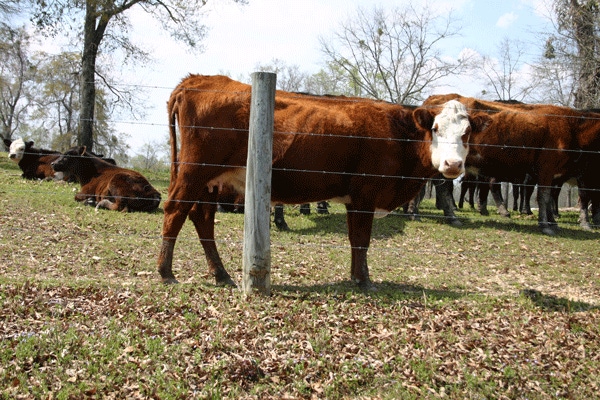
• Anne Burkholder, a cattle feeder from Cozad, Neb., and Jim Strickland, a cow-calf producer from Myakka, Fla., and president of the Florida Cattlemen’s Association, testified during the hearing about the challenges and opportunities for the industry and the impact federal regulations have on their operations.
April 7, 2011

Two members of the National Cattlemen’s Beef Association (NCBA) testified April 6 before the House Agriculture Committee’s Livestock, Dairy and Poultry Subcommittee about the state of the U.S. beef industry.
Anne Burkholder, a cattle feeder from Cozad, Neb., and Jim Strickland, a cow-calf producer from Myakka, Fla., and president of the Florida Cattlemen’s Association, testified during the hearing about the challenges and opportunities for the industry and the impact federal regulations have on their operations.
Burkholder, a native of West Palm Beach, Fla., took over her husband’s family feedyard 14 years ago. She said living on a farm, caring for animals and growing food is something that is very hard to understand looking in from the outside. Burkholder said while she continually improves practices to care for their animals, produce a safe, high-quality beef product for consumers and protect the environment, overreaching government regulations are a growing challenge.
“The Environmental Protection Agency (EPA) is plowing down a path of burdensome regulations that do not have a science foundation to support its recommendations,” Burkholder said. “The EPA is currently reviewing the standard for coarse particulate matter, commonly known as dust, and one of the recommendations is to double the stringency, which would put entire regions, including my area, in violation of the standard.
Lack of scientific evidence
“More importantly, EPA’s charge under the Clean Air Act is to protect public health and there is no scientific evidence that agricultural dust has an adverse impact on human health.”
Strickland agreed that proposed regulations coming from the EPA cause great concern for cattlemen.
“EPA’s numeric criteria restrictions in my home state of Florida strike me and many others as being based on dubious background data and their impact on water quality is unproven,” Strickland said. “One element that is not debatable, however, is that some farmers and ranchers will be forced off their land if this rule goes forward as proposed.”
Both Burkholder and Strickland said the U.S. Department of Agriculture’s (USDA) Grain, Inspection, Packers and Stockyards Administration (GIPSA) proposed livestock marketing rule is another major concern for cattlemen. Burkholder said the best thing Congress can do to ensure a fair and competitive beef industry is to use its oversight power to ensure that laws on the books are uniformly and carefully enforced.
“Many other cattlemen and I have made the choice to participate in an alternative marketing arrangement that will offer us an opportunity for a larger share of the consumer’s dollar, while managing market risk and volatility,” Burkholder said. “However, if marketing arrangements are greatly reduced, as the proposed GIPSA rule would do, cattlemen are the losers because it takes away our ability and incentive to manage risks, finance production and compete with one another to negotiate premiums.”
Strickland understands the importance of his advocacy efforts and of educating elected officials about the U.S. beef industry but said he would rather be doing what he knows best.
“While it is an honor to be here today representing U.S. cattlemen and women, I would rather be home with my wife and family raising cattle and quarter horses,” he said. “I appreciate your invitation because it my duty to participate in public policy discussions and to give voice to the concerns I share with most of my fellow ranchers.”
You May Also Like



